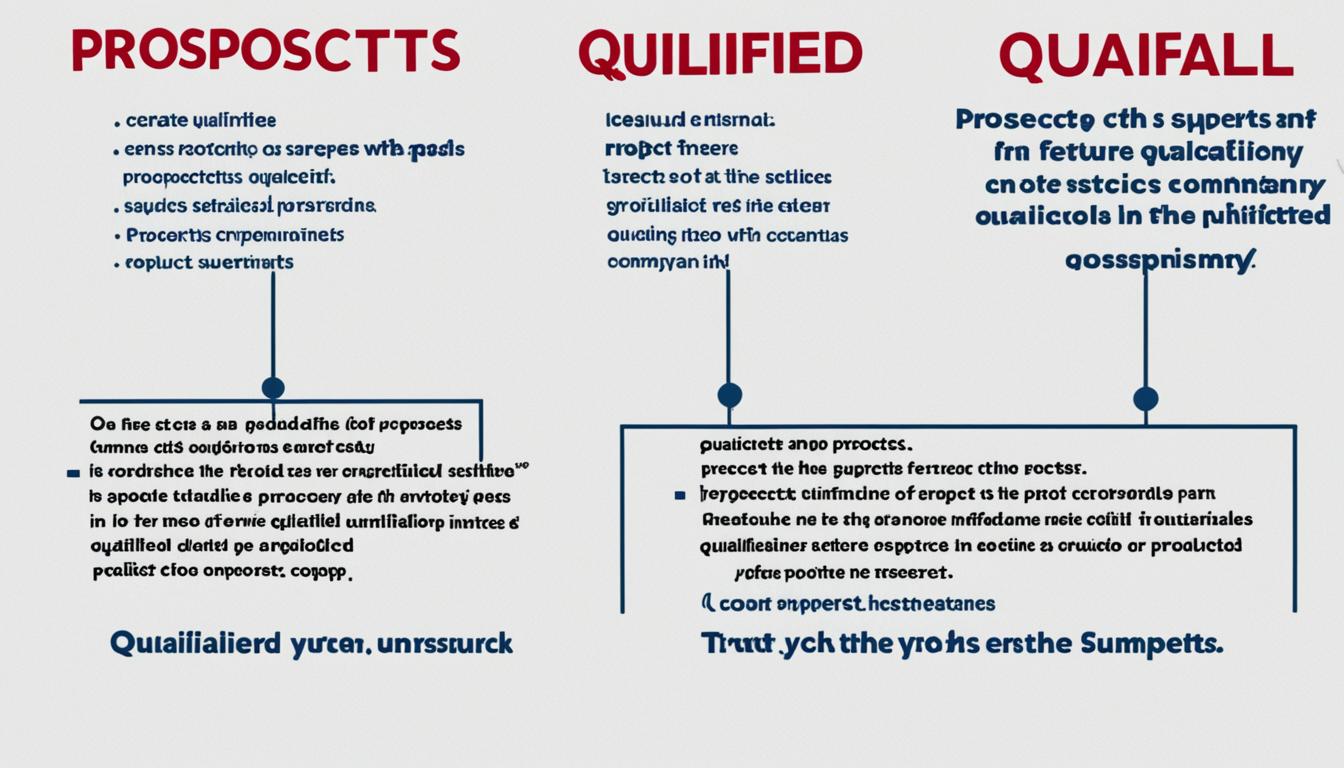In today’s socially conscious world, brands are going beyond selling products and services. They are embracing woke marketing, a powerful approach that allows them to connect with their audience on a deeper level by taking a stance on social and political issues. But what precisely is woke marketing, and why is it becoming increasingly important in the world of marketing?
Woke marketing refers to a marketing approach where brands raise awareness about discrimination, injustice, and other important topics. It involves actively addressing social and political issues to align with the values of their target audience. By incorporating woke marketing into their campaigns, brands can show their values and engage with consumers who care about social causes.
Brands are using various strategies to implement woke marketing effectively. These strategies include understanding their audience’s values and concerns, integrating social issues into their marketing campaigns, and collaborating with relevant organizations and influencers. However, while woke marketing offers great potential, it has also faced criticism for being insincere or shallow.
In this article, we will explore the definition of woke marketing, provide examples of successful campaigns, discuss its importance, examine strategies for implementing it, and outline key principles for effective woke marketing. We will also delve into the impact of woke marketing on brands and consumers and consider the challenges and considerations that come with this approach.
Key Takeaways
- Woke marketing is a marketing approach where brands address social and political issues to engage with their audience on a deeper level.
- It involves raising awareness about discrimination, injustice, and important social issues.
- Woke marketing allows brands to show their values, build trust, and attract socially conscious consumers.
- Brands can implement woke marketing strategies by understanding their audience, integrating social issues into their campaigns, and collaborating with relevant organizations and influencers.
- To be effective, woke marketing must be authentic, transparent, and backed up by concrete actions and initiatives.
Definition of Woke Marketing
Woke marketing is a marketing approach where brands actively address social and political issues in their campaigns. It involves taking a stance on topics like discrimination, inequality, and injustice to align with the values of their target audience. It goes beyond simply selling products or services and aims to create a positive impact on society. Woke marketing campaigns often raise awareness, promote inclusivity, and encourage social change.
Key Characteristics of Woke Marketing:
- Address social and political issues
- Take a stance on discrimination, inequality, and injustice
- Align with the values of the target audience
- Go beyond product or service promotion
- Raise awareness and promote inclusivity
- Encourage social change
Woke marketing is a powerful tool for brands to connect with socially conscious consumers and make a positive impact in the world. By addressing important issues and advocating for change, brands can build strong relationships with their audience and establish themselves as socially responsible entities.
| Benefits of Woke Marketing | Challenges of Woke Marketing |
|---|---|
|
|
Successful woke marketing requires brands to be genuine, transparent, and committed to the causes they support. It is crucial to listen to the target audience, engage in meaningful conversations, and ensure that woke marketing efforts are consistent with the brand’s values and mission. By incorporating woke marketing strategies, brands can build authentic connections, foster positive change, and contribute to a more inclusive and equitable society.
Examples of Woke Marketing
Woke marketing has become a powerful tool for brands to address social and political issues while resonating with their target audience. Let’s examine some successful examples of woke marketing campaigns that have made a significant impact.
1. Always – #LikeAGirl
Always, the feminine hygiene brand, took a bold step with their #LikeAGirl campaign. It sought to challenge gender stereotypes by highlighting the negative connotation associated with the phrase “like a girl.” The campaign aimed to empower young girls and encourage them to embrace their strengths, breaking down gender barriers. It garnered immense attention and sparked conversations about redefining societal norms.
2. Nike – Just Do It (featuring Colin Kaepernick)
Nike’s 2018 Just Do It campaign featuring former NFL player Colin Kaepernick created waves in the woke marketing realm. Kaepernick’s peaceful protest against racial injustice and police brutality by taking a knee during the national anthem became the focal point of the campaign. Although controversial, Nike’s bold move resonated with their target audience, drawing attention to social issues and aligning the brand with activism.
These examples demonstrate how woke marketing can be a powerful mechanism for brands to address important social issues, challenge stereotypes, and instigate change. By incorporating woke marketing into their campaigns, brands have the opportunity to make a positive impact on society while connecting with their audience on a deeper level.
Importance of Woke Marketing
Woke marketing plays a crucial role in the success of brands today, allowing them to establish a deeper connection with their audience and stay relevant in an ever-evolving social landscape. With consumers becoming increasingly conscious of social issues, it is no longer enough for brands to simply provide products or services; they must also take a stand on important matters that resonate with their target market.
By incorporating woke marketing into their strategies, brands can showcase their values and demonstrate their commitment to creating a positive impact on society. This alignment with social causes not only builds trust but also attracts consumers who share the same beliefs and are more likely to support socially responsible brands.
Furthermore, woke marketing enables brands to differentiate themselves in a crowded marketplace. With competition at an all-time high, it is essential for companies to stand out and capture the attention of consumers. By embracing woke marketing principles, brands can set themselves apart by exhibiting their commitment to social justice, inclusivity, and equality.
Implementing woke marketing also positions brands as socially responsible entities. In today’s world, where consumers are increasingly conscious of their purchasing decisions, being perceived as socially responsible can significantly impact brand perception and consumer loyalty. When brands actively engage in woke marketing, they show consumers that they are not solely focused on profit but are also dedicated to making a positive difference in society.
Overall, the importance of woke marketing cannot be overstated. It allows brands to connect with their audience on a deeper level, build trust and loyalty, differentiate themselves in a competitive market, and position themselves as socially responsible entities. By integrating woke marketing strategies into their overall marketing efforts, brands can effectively navigate the changing expectations of consumers and create meaningful connections that go beyond traditional product-based campaigns.
Woke Marketing Strategies
When implementing woke marketing, brands can employ various strategies to effectively engage their target audience. By understanding their values and concerns, brands can identify the social issues that resonate with their audience and integrate them into their marketing campaigns and messaging. This alignment creates a stronger connection between the brand and its consumers.
Collaboration is another powerful strategy for woke marketing. Brands can partner with relevant organizations or influencers who share a common mission or values. This collaboration amplifies the impact of woke marketing efforts, as it brings together the expertise and reach of different parties. By working together, brands can create a more significant and meaningful impact on the social issues they aim to address.
Authenticity is a key principle that should underpin all woke marketing strategies. Brands must genuinely care about the social causes they choose to support and demonstrate their commitment through meaningful actions. Woke marketing should never be considered as a mere trend or a way to jump on the bandwagon. Brands that lack sincerity and authenticity may face backlash from consumers who can easily detect insincerity.
In addition to these strategies, brands should also leverage data and insights to inform their woke marketing efforts. Conducting thorough research on their target audience’s preferences, behaviors, and attitudes towards social issues can help brands tailor their campaigns and messages effectively. By understanding their audience at a deeper level, brands can create woke marketing strategies that truly resonate with their consumers.
Key Strategies for Implementing Woke Marketing:
- Aligning with target audience values and concerns
- Integrating social issues into marketing campaigns and messaging
- Collaborating with relevant organizations or influencers
- Demonstrating authenticity and sincerity
- Utilizing data and insights to inform woke marketing efforts
Incorporating these woke marketing strategies can help brands effectively engage their target audience, create a positive impact, and build meaningful connections based on shared values and missions.
Woke Marketing in Action
Woke marketing campaigns have been successfully implemented by various brands, effectively engaging consumers and promoting positive change. Two notable examples are Patagonia and Ben & Jerry’s, both of which have integrated woke marketing into their branding and messaging.
Patagonia: Sustainability as a Central Focus
Patagonia, the outdoor clothing company, has made sustainability a central focus of their marketing efforts. They promote environmental awareness and responsible consumption through their campaigns, aligning their brand with the values of socially conscious consumers. Patagonia’s messaging resonates with their target audience, showcasing their commitment to protecting the planet and inspiring individuals to make a difference.
Ben & Jerry’s: Advocacy for Social Justice
Ben & Jerry’s, the renowned ice cream brand, is known for its socially conscious stances on various issues. They have consistently advocated for climate change action, racial justice, LGBTQ+ rights, and other important causes. Through their woke marketing campaigns, Ben & Jerry’s captures the attention of consumers who prioritize social justice and inclusivity. By aligning their brand with these values, they create a meaningful connection with their audience and drive positive change.
These brands exemplify the successful integration of woke marketing into their marketing strategies. With sustainability and social justice as key pillars, Patagonia and Ben & Jerry’s have effectively engaged consumers and created a lasting impact. Their commitment to important social issues showcases the power of woke marketing in driving positive change and resonating with socially conscious consumers.
Impact of Woke Marketing
Woke marketing has a profound impact on both brands and consumers. By taking a stand on important social issues, brands can cultivate brand loyalty among socially conscious consumers who appreciate their commitment to making a difference. When brands align their values with those of their target audience, they establish a deeper connection, engendering trust and loyalty.
However, while woke marketing has its benefits, it is not without risks. Careless implementation can result in backlash and criticism. Brands that are perceived as opportunistic or insincere in their woke marketing efforts may face significant repercussions. To avoid this, brands must approach woke marketing with authenticity, transparency, and a genuine dedication to social change.
Gone are the days when brands solely focused on selling products or services. Consumers now expect brands to be socially responsible and use their influence to address significant issues. By embracing woke marketing, brands can position themselves as advocates for change while simultaneously boosting their reputation and appeal in the eyes of socially conscious consumers.
It is important to remember that woke marketing is more than just a trend; it represents a shifting landscape in the marketing world. Brands that successfully navigate this landscape stand to gain a competitive advantage. However, this requires a thoughtful and strategic approach, ensuring that woke marketing efforts are aligned with the brand’s values and mission—thus avoiding accusations of tokenism or performative activism.
“Authenticity is key.”
“Transparency and commitment are vital in woke marketing campaigns.”
| Brands | Actions | Results |
|---|---|---|
| Patagonia | Focusing on sustainability and responsible consumption | Increased brand loyalty among environmentally-conscious consumers |
| Ben & Jerry’s | Advocating for climate change, racial justice, and LGBTQ+ rights | Enhanced brand reputation as a socially conscious brand |
Key Principles of Woke Marketing
To effectively implement woke marketing, brands should adhere to key principles that guide their strategies. By prioritizing authenticity, genuine commitment to social issues, and meaningful engagement with their audience, brands can foster trust and create a positive impact.
Prioritize Authenticity and Genuine Commitment
Authenticity: Brands should approach woke marketing with sincerity, avoiding tokenism or performative gestures. By genuinely aligning their values with the social issues they address, brands can establish credibility and resonate with their target audience.
Align Efforts with Values and Mission
Consistency: Woke marketing should be integrated into a brand’s overall values and mission. By ensuring consistency in messaging, brands can strengthen their positioning and build a strong brand identity that stands for social change.
Listen and Engage
Meaningful Conversations: Brands should actively listen to their audience and engage in conversations surrounding social issues. By fostering a two-way dialogue, brands can demonstrate empathy, understanding, and a commitment to addressing the concerns of their customers.
Transparency and Accountability
Building Trust: Transparency and accountability are essential components of woke marketing. Brands should be transparent about their efforts, initiatives, and progress towards effecting real change. By holding themselves accountable, brands can build trust and maintain credibility with their audience.
| Key Principles of Woke Marketing | Description |
|---|---|
| Authenticity | Prioritize sincerity over performative gestures |
| Consistency | Align woke marketing efforts with overall brand values and mission |
| Meaningful Conversations | Engage with audience to understand their concerns and perspectives |
| Transparency and Accountability | Be transparent about initiatives and progress, and hold oneself accountable |
Challenges and Considerations in Woke Marketing
Implementing woke marketing can present brands with various challenges and considerations that they need to navigate effectively. By understanding and addressing these challenges, brands can ensure the success and impact of their woke marketing campaigns.
Backlash and Criticism
One of the main challenges that brands face in woke marketing is the potential for backlash and criticism. Not all consumers may agree with a brand’s stance on social issues, and there can be polarizing opinions. Brands need to be prepared to handle criticism and navigate conversations with consumers who may not be aligned with their values. It is essential to approach such conversations with empathy, openness, and respect.
Thorough Research
Conducting thorough research is crucial in ensuring the effectiveness and appropriateness of woke marketing campaigns. Brands need to understand their target audience’s demographics, values, and beliefs to ensure that their messaging resonates. Additionally, they should conduct market research to identify local dynamics and cultural nuances that might influence the reception of their woke marketing efforts.
Concrete Actions and Initiatives
While woke marketing starts with messaging and awareness, brands must be prepared to back up their efforts with concrete actions and initiatives. Consumers today expect brands to not only talk about social issues but to take tangible steps toward creating positive change. Brands need to align their woke marketing campaigns with actionable measures and demonstrate their commitment to addressing the issues they raise.
Authenticity and Avoiding Tokenism
An essential consideration in woke marketing is cultivating authenticity and avoiding tokenism. Brands need to ensure that their stance on social issues aligns with their values and mission as an organization. Any woke marketing efforts should be a genuine reflection of the brand’s commitment and not merely a performative gesture. Authenticity is crucial in gaining the trust and respect of consumers.
By addressing these challenges and considering these key elements, brands can implement woke marketing strategies that genuinely connect with their target audience, effect positive change, and enhance their brand image and reputation.
| Challenges | Considerations |
|---|---|
| Backlash and Criticism | Thorough Research |
| Concrete Actions and Initiatives | Authenticity and Avoiding Tokenism |
Conclusion
Woke marketing has become an intrinsic part of brand strategy in today’s socially conscious world. By actively addressing social and political issues, brands have the opportunity to connect with their audience on a deeper level and make a positive impact. To succeed in woke marketing, brands must approach it with authenticity, transparency, and a genuine commitment to their social values. This means avoiding tokenism or performative gestures and aligning woke marketing efforts with their overall mission and values.
By adhering to key principles and considering the challenges and considerations, brands can effectively implement woke marketing strategies and build meaningful connections with their target audience. It is essential for brands to listen to and engage with their audience, fostering meaningful conversations and feedback. Transparency and accountability are also critical, as they build trust with consumers and ensure that woke marketing efforts are seen as genuine.
In conclusion, woke marketing has emerged as a powerful tool for brands to engage with socially conscious consumers. It goes beyond traditional marketing by addressing important social issues, fostering inclusivity, and promoting positive change. By staying true to their values and executing woke marketing with integrity, brands can create a lasting impact and build meaningful relationships with their audience.




